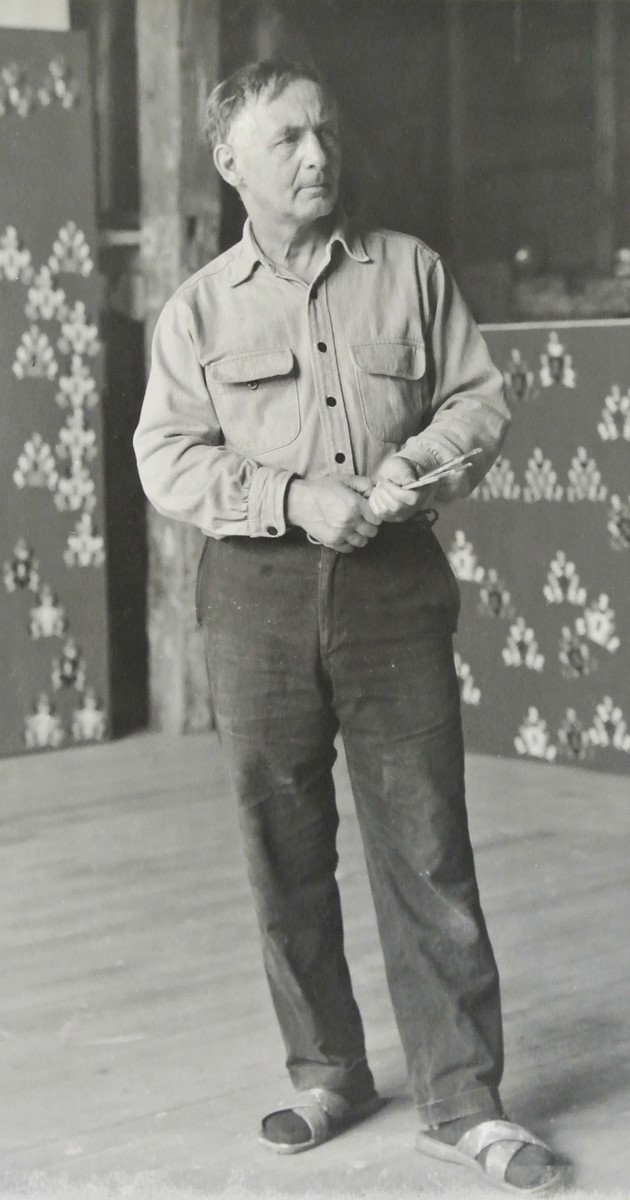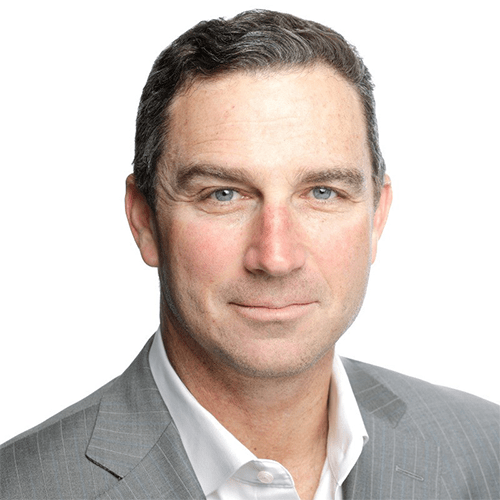You might’ve heard his name in the movie "The Big Short," but Mark Baum is more than just a Hollywood character. He’s the real-life financial genius who saw the 2008 crisis coming long before anyone else. In a world where Wall Street was blind to its own recklessness, Baum’s insight was like a lighthouse warning ships of the incoming storm. So, who exactly is this guy? Let’s dive into the story of the man who bet against the system and won.
Mark Baum isn’t your typical finance guru. He’s an anomaly—a guy who doesn’t fit the mold of the stereotypical Wall Street trader. Unlike the flashy, suit-wearing brokers we often see in movies, Baum is more of a rebel with a cause. His journey to becoming one of the few people who predicted the financial collapse is as fascinating as it is unconventional. It’s not just about the numbers for Baum; it’s about the bigger picture and the human cost behind them.
What makes Baum’s story so compelling is how it challenges the status quo. In a world dominated by greed and complacency, he dared to question the system. This article will take you on a deep dive into Baum’s life, his predictions, and the lessons we can learn from his experiences. Whether you’re a finance enthusiast or just someone curious about how the 2008 crisis unfolded, this is the story you need to know.
Read also:Sue Substance The Untold Story Of A Revolutionary Trend
Biography of Mark Baum
Before we get into the nitty-gritty of Baum’s financial wizardry, let’s take a step back and explore who he really is. Mark Baum wasn’t always the guy betting against the housing market. His journey to fame (or infamy, depending on how you look at it) is a tale of transformation, driven by a desire to uncover the truth behind the numbers.
Early Life and Education
Mark Baum’s early life wasn’t exactly glamorous. Growing up, he didn’t have the privilege of attending Ivy League schools or being groomed for a career in finance from a young age. Instead, his path was more organic. He studied economics and developed a keen interest in markets, but it wasn’t until later in life that he truly found his calling.
Here’s a quick snapshot of Baum’s early life:
- Born and raised in a modest family.
- Studied economics at a state university.
- Worked in various financial roles before finding his niche.
Key Facts About Mark Baum
| Full Name | Mark Baum |
|---|---|
| Date of Birth | Not publicly disclosed |
| Education | Economics graduate |
| Profession | Financial Analyst, Investor |
| Claim to Fame | Predicting the 2008 financial crisis |
How Mark Baum Predicted the 2008 Crisis
So, how exactly did Baum manage to see the financial tsunami coming when everyone else was busy partying on Wall Street? It wasn’t magic; it was a combination of sharp analysis, gut instinct, and a willingness to question the status quo. While most people were buying into the myth of the housing market’s invincibility, Baum was digging deeper, uncovering the cracks in the system.
Uncovering the Subprime Mortgage Scandal
One of the key factors that set Baum apart was his investigation into the subprime mortgage market. He realized that the loans being issued were unsustainable, and the entire housing market was built on a house of cards. Here’s how he broke it down:
- Subprime loans were being given to people who couldn’t afford them.
- The system was riddled with fraud and mismanagement.
- No one seemed to care about the long-term consequences.
It wasn’t just about the numbers for Baum; it was about the people. He saw the human impact of these reckless loans and knew that disaster was inevitable.
Read also:Dj Vance Family The Beat That Unites The World
The Big Short: Mark Baum’s Role
If you’ve seen the movie "The Big Short," you know Baum’s story has been immortalized on the big screen. But the real-life version is even more compelling. In this section, we’ll explore how Baum’s predictions became reality and the impact it had on the financial world.
Why Did Mark Baum Bet Against the Market?
For Baum, betting against the market wasn’t just about making money; it was about exposing the truth. He believed that the financial system was rigged, and someone needed to call it out. Here’s how he did it:
- He identified the flaws in the housing market.
- He placed bets against the subprime mortgage-backed securities.
- When the market crashed, his predictions proved correct.
It wasn’t an easy road for Baum. He faced ridicule and skepticism from his peers, but he stood by his convictions. In the end, his bold move paid off in more ways than one.
Lessons from Mark Baum’s Story
Mark Baum’s journey offers valuable lessons for anyone interested in finance or simply curious about how the world works. Here are some key takeaways:
1. Question the Status Quo
Baum’s success wasn’t just about his analytical skills; it was about his willingness to challenge conventional wisdom. In a world where everyone else was drinking the Kool-Aid, he was the one asking tough questions.
2. Look Beyond the Numbers
While data and analysis are important, Baum also understood the human element behind the numbers. He saw the real-world impact of the financial system’s failures and used that understanding to inform his decisions.
3. Stay True to Your Convictions
It’s easy to get swayed by the crowd, but Baum stayed true to his beliefs, even when it meant going against the grain. His unwavering commitment to the truth is what ultimately led to his success.
Mark Baum’s Impact on the Financial World
Baum’s predictions didn’t just shake up the financial world; they changed it forever. His story serves as a cautionary tale about the dangers of greed and complacency in the financial sector. Here’s how his impact is still felt today:
1. Greater Transparency
After the 2008 crisis, there was a push for greater transparency in the financial markets. Baum’s story highlighted the need for accountability and honesty in the industry.
2. Increased Regulation
Regulatory bodies took notice of Baum’s warnings and implemented stricter rules to prevent another crisis. While no system is perfect, these changes have made the financial world safer for everyone.
3. Inspiration for Future Generations
For aspiring financial analysts and investors, Baum’s story is a source of inspiration. It shows that with the right mindset and tools, anyone can make a difference in the world of finance.
Challenges Faced by Mark Baum
Of course, Baum’s journey wasn’t without its challenges. From facing ridicule from his peers to dealing with the emotional toll of being a whistleblower, he encountered numerous obstacles along the way.
1. Skepticism from Peers
When Baum first started warning about the impending crisis, many of his colleagues dismissed him as a doomsayer. It wasn’t until the market collapsed that they realized he was right.
2. Emotional Strain
Knowing that a crisis was coming and being powerless to stop it took a toll on Baum’s mental health. He carried the weight of his predictions, knowing that millions of lives would be affected by the collapse.
3. Rebuilding Trust
After the crisis, Baum faced the challenge of rebuilding trust in the financial system. His story serves as a reminder that trust is hard to earn and easy to lose.
Mark Baum’s Legacy
Mark Baum’s legacy extends far beyond the 2008 financial crisis. He’s become a symbol of integrity and courage in the financial world, inspiring countless others to follow in his footsteps.
1. A Voice for Change
Baum’s willingness to speak truth to power has made him a voice for change in the financial industry. His story is a reminder that even one person can make a difference.
2. A Blueprint for Success
For aspiring analysts and investors, Baum’s approach offers a blueprint for success. By combining analytical skills with a commitment to the truth, anyone can navigate the complexities of the financial world.
3. A Cautionary Tale
Finally, Baum’s story serves as a cautionary tale about the dangers of greed and complacency. It’s a reminder that the financial world is fragile and that we all have a responsibility to protect it.
Conclusion
Mark Baum’s story is more than just a tale of financial genius; it’s a lesson in courage, integrity, and the power of questioning the status quo. From his early days as a finance enthusiast to his role in predicting the 2008 crisis, Baum has left an indelible mark on the financial world.
As we look back on his journey, we’re reminded of the importance of staying vigilant and informed. Whether you’re a seasoned investor or just someone interested in how the financial system works, Baum’s story offers valuable insights and lessons for us all.
So, what’s next? If you enjoyed this article, why not share it with your friends? And if you’re hungry for more knowledge, check out some of our other articles on finance and economics. Let’s keep the conversation going and learn from the past to build a better future!
Table of Contents


